Funded Researchers & Collaborators
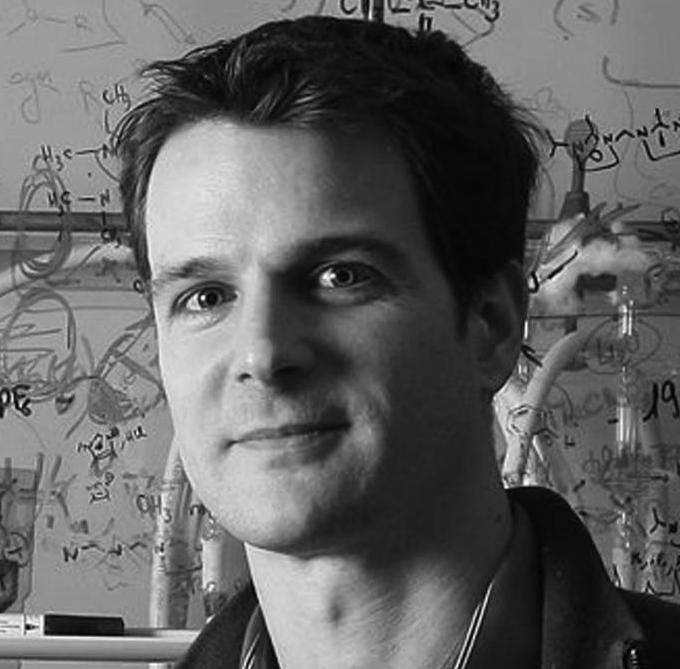 Professor Martin Albrecht
Professor Martin Albrecht
Dept of Chemistry & Biochemistry, University of Bern
UCD Webpage
Molecular approaches to photolytic water splitting
Our research group aims at exploiting the wealth of activities of transition metals by appropriate ligand design. Applications range from molecular electronics, spintronics, and molecular switches up to anticancer activity. A large portion of our research activity is currently devoted to the design, synthesis, and application of new catalytic systems. Recent interest includes, specifically, the use of so-called abnormal (mesoionic) carbene ligands, which combine a high donor power with the potential for cooperative ligand-metal processes. We have recently exploited these properties by devising base-free oxidation processes for alcohols and amines, and we have developed a robust and active catalyst for water oxidation.

Dr Teresa Curtin
Dept of Chemical and Environmental Sciences, University of Limerick
UL Webpage
Mesoporous solids for low temperature CO2 adsorption
Senior lecturer in the Materials and Surface Science Institute and Department of
Chemical and Environmental Sciences; Course Director, Environmental Science.
Research is primarily focused on catalysis and adsorption using high surface area
solids. Typical solids include mesoporous silica, aluminophosphates and aluminosilica
type solids, zeolites and supported catalyst/adsorbents. Research includes synthesis
and solid characterisation. These solids are primarily used for the adsorption of
CO2 from air, removal of metals from water, oxidation of organics, oxidation of
ammonia and the hydrogenation of edible oils.
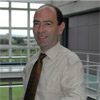
Professor Denis Dowling
UCD School Mechanical and Materials Engineering
UCD Webpage
Fabrication of New Polymer-Titania Materials for more efficient PV Cells
Physical Vapour Deposition techniques in the synthesis of doped TiO2
Fabrication of nanocrystalline NiO surfaces
Photoelectrode fabrication and QD/Molecular Catalyst Immobilisation
Coated polymer substrates and Sealant
Denis has over 20 years experience in working in all aspects of materials science.
He was responsible for setting up the Surface Engineering research group at Enterprise
Ireland in 1990. He transferred this activity to UCD in 2004. The Group currently
consists of over 20 researchers. Denis has managed a large number of both EU and
industry funded research projects. His specialist areas of interest are in the use
of plasma treatments for the surface modification of materials. Denis also has an
IMI post graduate diploma in business strategy and has worked as a consultant assisting
companies to develop their R&D activities. He has over 100 papers in peer reviewed
journals, 50 other publications and several patents. He is the Irish representative on
the COST Materials, Physical and Nanotechnology technical committee. He is also
a member of the Irish branch of the Institute of Metal Finishing.He heads the recently-
established SFI i-Form Centre

Professor Niall English
UCD School of Chemical & Bioprocess Engineering
UCD Webpage
Studies in Molecular and Electronic Modelling of Dye-sensitised and Semiconductor
Nanorod PV Cells
Atomistic and quantum simulation of thin metal oxide films
Computational Analysis of the Active Site of Rubisco and Synthetic Analogues
Modelling of Hydrogen Storage and Release
Research
My interests focus on molecular and electronic-level modelling of: (i) the effects
of electromagnetic and electric fields on (nano)materials and biological systems;
(ii) solar energy materials design; (iii) water, ice and clathrate hydrate simulation;
(iv) general applications of molecular simulation towards energy; and (v) computational
nanoscience and nanomedicine. In so doing, my group and I employ and develop both
classical and quantum molecular simulation techniques and codes.He heads the Materials,
Energy & Waters Simulations (MEWS) Group.
250 articles in refereed international journals.In 2013-14, he took over as SEC strand leader on Simulation & Modelling.
He heads a recent SFI-NSFC project into molecular simulation for solar-driven water splitting. He is coordinating a CECAM workshop in Summer 2022 on photoelectrochemical water splitting, as well as other associated renewable-energy phenomena, continuing the SEC’s goals
- Committee member of the Nanoscale Simulators in Ireland (NSI), member of the Atlantic
Centre for Atomistic Simulation (ACAM), and member of ICHEC’s Science Council of Irish
Centre for High End Computing (ICHEC).
- Co-organiser of curriculum and development of the NSI molecular simulation training
initiative.
- Experience in workshop/symposium organisation (NSI and CECAM).
- Manager of SFI-funded HPC cluster: grant, specification, procurement, system
administration.
- Fellow of Institution of Chemical Engineers (IChemE), member of American
Institute of Chemical Engineers (AIChE) and American Chemical Society (ACS).

Dr Nick Gathergood
School of Chemical Sciences, Dublin City University
DCU Webpage
Applications of low toxicity and biodegradable ionic liquids
Research Interests:
Book Chapters
Ionic Liquids: Applications and Perspectives (Pub. InTech) February 2011. ISBN 978-953-307-248-7, (Ed.) Alexander Kokorin. Chapter Title. ‘Hydrogenation in Ionic Liquids’ Mukund Ghavre, Saibh Morrissey and Nicholas Gathergood, pp331-392
Patents
Gathergood, N.*; Pegot, B.; Beadham, I.; Gurbisz, M.; Ghavre, M.; Morrissey, S. Ionic Liquid Solvents. EPO patent application 09002653.5, 2009, filed 25th February 2009. PCT/EP2010/052345 (WO/2010/097412) filed 24th February 2010.
Gathergood, N.*; Pegot, B.; Morrissey, S. Biodegradable Solvents for the Chemical Industry: Task Specific ionic liquids, Irish patent application, 2007/0597 filed 21st August 2007. PCT Int. Appl. PCT/EP2008/060978 filed 6th September 2008. National phase Feb 2010.
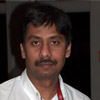
Dr Chandralal Hewage
UCD School of Biomolecular & Biomedical Science
UCD Webpage
Main Group Metal Analogues of the Catalytic Site in Rubisco
Research Focus
- Structural studies of incretin peptide hormones.
- New catalysts, Rubisco and renewable energy.
- NMR investigations of antimicrobial peptides.
- Protein-ligand docking studies of Class-B GPCR receptors.
- Natural products for diabetic therapy.
- Bio-actives and Natural beverages.
Number of publications/awards/professional bodies
- Over hundred publications and communications.
- Award from the Enterprise Ireland, Science Foundation Ireland, IRCSET, Teagasc,
UCD.
- Chairman of the Irish NMR Society.
- Secretary of the Irish Peptide Society.
- Board Member – EU NMR Society (EUROMAR).
- Board Member – EU Peptide Society (EPS).
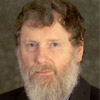
Professor J. Paul. G Malthouse
UCD School of Biomolecular & Biomedical Science
UCD Webpage
Main Group Metal Analogues of the Catalytic Site in Rubisco
Research
Currently we are synthesizing specific glyoxal inhibitors. These we hope will be
lead compounds in developing new drugs to treat conditions such as cancer, malaria,
diabetes and Alzheimer's disease. We are also studying biomimetic methods of carbon
dioxide fixation. A range of metals, metal scaffolds and substrates will be assessed
as possible biomimetics using NMR and other techniques.
Professional Bodies
- 2005-present, Irish expert on the EU COST Technical Committee for Chemistry.
- Editor for Enzyme Research (http://www.sage-hindawi.com/journals/er/).
- Editorial Advisor for Biochemical Journal since 1997.
- Referee for JACS, Biochemistry, BBA, Protein Science, FEBS letters.
- Member of Royal Irish Academy, Biochemical Society, International Proteolysis Society
and European Peptide Society.
Dr Damian A Mooney
UCD School of Chemical and Bioprocess Engineering
UCD Webpage
Studies in Molecular and Electronic Modelling of Dye-sensitised and Semiconductor
Nanorod PV Cells
Computational Analysis of the Active Site of Rubisco and Synthetic Analogues
Research
- Molecular simulation (classical, quantum), transport processes, porous media, soft
matter, protein structure/function.
Professional Bodies
- Member of the American Institute of Chemical Engineers.
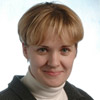
Dr Grace Morgan
UCD School of Chemistry and Chemical Biology
UCD Webpage
Transition Metal Analogues of the Catalytic Site in Rubisco
Molecular catalysts for CO2 Reduction/ Photo-electrochemical Cells for water-splitting and CO2 Reduction
Relevant Publications
- Improved Cooperativity of Spin-Labile Iron(III) Centers by Self-Assembly in Solution,
Claudio Gandolfi, Christian Moitzi, Peter Schurtenberger, Grace G. Morgan and Martin
Albrecht, J. Am. Chem. Soc., 2008, 130, 14434.
- A Manganese(III) Complex that Exhibits Spin Crossover Triggered by Geometric Tuning,
G. G. Morgan, K. D. Murnaghan, H. Muller-Bunz, V. McKee and C. J. Harding, Angew.
Chem. Int. Ed., 2006, 45, 7192.
- d10 Cations within Triple-Helical Cryptand hosts; a Structural and Modelling Study,
M. G. B. Drew, D. Farrell, G. G. Morgan, V. McKee and J. Nelson, J. Chem. Soc.,
Dalton Trans., 2000, 1513.
- Encapsulated Tl(III) Strongly Retained within an Inminophenolate Cryptand host,
M. G. B. Drew, O. W. Howarth, N. Martin, G. G. Morgan and J. Nelson, J. Chem. Soc.,
Dalton Trans., 2000, 1275.
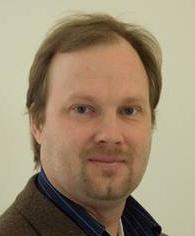
Dr Andrew Phillips
UCD School of Chemistry and Chemical Biology
Science Foundation Ireland (SFI) Stokes lecturer of Inorganic Chemistry, appointed Autumn 2008
UCD Webpage
Synthesis and optimisation of metal-based solar dye complexes
Hydrogen Release Catalysis
Our research is directed towards the design and synthesis of highly electronically tuneable ruthenium and cobalt complexes based on new pi-conjugated chelating azo-substituted heterocycles. We routinely employ high-level DFT calculations to help optimize the nature of the complex and ligand in terms of absorption wavelength and control of the metal-to-ligand charge transfer. We specialize in techniques where the complexes can be prepared in large quantities without the need of using advanced and time consuming chromatographic separation methods. Dr. Phillips is the author of over 60 papers in international journals and has one patent in the area of hydrogen storage. He has a broad international research background, having studied and worked in Canada (Ph.D. 2001), United States, Italy, France, Spain (European Network Fellowship) and Switzerland (Marie Curie Fellowship). He is a member of the Swiss, Canadian and American Chemistry Societies.

Dr Mary Pryce
School of Chemical Sciences, Dublin City Univeristy
DCU Webpage
Molecular catalysts for CO2 Reduction/ Photo-electrochemical Cells for water-splitting and CO2 Reduction
BSc. degree from DCU in 1991. A PhD (1991-1994) was subsequently obtained in organometallic photochemistry. Post doctoral studies were carried out during 1995 and 1996 at the University of Milan with Prof. Stefano Maiorana before rejoining the School of Chemical Sciences at DCU in 1997 as a Lecturer.
Research Interests: organometallic photochemistry, photophysics, spectroscopy, and the uses of organometallic compounds in organic synthesis
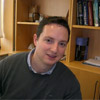
Professor Kevin M. Ryan
Dept of Chemical and Environmental Sciences, University of Limerick
http://ifnano.com
Directed Vertical Assembly of II-VI Semiconductor Nanorods for Low-Cost
Solution Processable Solar Cells
Synthetic Protocols for Nanorod Crystals
The Nanotechnology group at the Materials and Surface Science Institute is led by
Dr. Kevin M. Ryan, SFI Stokes Lecturer, Department of Chemical and Environmental
Sciences. Previous affiliations included Marie Curie Fellowship positions at the
University of California, Berkeley, USA and Merck Chemicals Southampton, UK following
BSc (99) and PhD degrees (03) at University College Cork.
The research Interests of the group (currently 4 Postdoctoral researchers and 6
PhD students) are in Semiconductor Nanocrystals with emphasis on Synthesis, Assembly
and Device Application. Funding is Gratefully Acknowledged from Science Foundation
Ireland (SFI), for both a Principal Investigator Grant and Strategic research cluster
funding and also to Enterprise Ireland (EI), Irish Research Council for Science
Engineering and Technology (IRCSET), Higher Education Authority (HEA) and Intel
Ireland.
- Institute of Chemistry of Ireland Golden Jubilee Award 2001
- Member of Royal Society of Chemistry, Materials Research Society, Electrochemical
Society, Marie Curie Fellowship Association
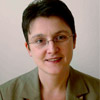
Professor Cosima Stubenrauch
School of Chemical and Bioprocess Engineering & Institute
of Physical Chemistry, University Stuttgart, Germany
UCD Webpage
Synthesis and Characterisation of New High Surface Area Polymers
1997 PhD in Physical Chemistry (TU Berlin, Germany), 1998-1999 post-doc (Paris,
France), 1999-2004 associate researcher and lecturer (Cologne, Germany), 2004 Habilitation
in Physical Chemistry, 2005-2007 lecturer at UCD, 2007-2009 senior lecturer at UCD,
since 2009 Visiting Professor at UCD and Chair of Physical Chemistry at University
Stuttgart, Germany.
Further details on weblink above.
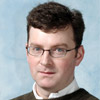
Dr James Sullivan
UCD School of Chemistry and Chemical Biology
UCD Webpage
Sol-gel synthesis and characterisation of the photo-electrochemical activity
of doped TiO2
Transition Metal Analogues of the Catalytic Site in Rubisco
Hetrogenization and reversible Hydrogen Release Catalysis
BSc (1992), PhD, unfder the supervision of Prof J Cunningham (1996) UCC, Post doctoral
research fellow University of Reading (1996-1999), Honorary research fellow QUB
(1999-2000), Appointed to UCD in 2000, Senior Lecturer(2007), School Head of Teaching
and Learning.
Research Interests
- Environmental Heterogeneous Catalysis with projects including Particulate Matter
Combustion and NOx Storage and Reduction using Pt/Ba Al2O3 catalysts.
- Biodiesel Synthesis using heterogeneous acid / base catalysts.
- Selective Glycerol Oxidation using supported Au nanoparticles
- CO2 fixation using H2, H2O splitting using photo-catalysts
- Selective oxidation using in-situ generated H2O2
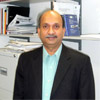
Professor K. Ravindranathan Thampi
Science Foundation Ireland-Airtricity Professorship (Associate) in Solar Energy
Engineering
UCD School of Chemical and Bioprocess Engineering
UCD Webpage
Dye Sensitized Solar Cells; Q-dots; Cell design and Architecture
Photolysis & Photocatalysis
Before joining UCD in July 2009, he was a group leader and Project Manager at the
Laboratory of Photonics & Interfaces (LPI), EPFL, Lausanne, Switzerland, where he
worked for over 23 years and intimately followed the invention and development of
dye sensitized solar cells from their inception. He has extensive collaborations
with several countries, notably EU countries, USA, India and Japan.
Besides his teaching and research activities, he directs and manages many research
projects funded by various national and international institutions.
Research
- Catalysis, fuel cells, nanomaterials, solar cells, and photoelectrochemical water
splitting. Some of his inventions have been commercially applied and licensed to
industries.
- He is an Associate Editor of the ASME Journal of Fuel Cell Science and Technology.
- He is also an Editorial Board Member of IJoMS (International Journal of Materials
Science).
- He has about ten patents to his credit. He was the international co-ordinator of
the ISCB biosensor development project funded jointly by the Swiss and Indian governments,
which has now reached the commercial prototype stage (licensed to industry).
- His past industrial experience includes the scaling up of a laboratory invention
in catalysis to a large commercial petrochemical plant.
- He has expertise in IP management and assisting industrial start-ups.
- Previously a member of the IEA SOFC annexe panel for making standards for electrochemically
testing solid oxide fuel cells.
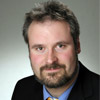
Dr Dominic Zerulla
UCD School of Physics
UCD Webpage
Spectroscopy and Efficacy of Dye Sensitized Solar Cells; Imaging and Spectroscopy
of the Wide Band-Gap II-VI Nanorod PV Cells
Plasmonic Enhancement of Q-dot Cells
Dr. Zerulla is the founding member and leader of the UCD Molecular Biophysics –
Imaging and Spectroscopy at the Nanoscale group since his arrival in UCD in October
2004. He is Senior Lecturer at the UCD School of Physics and Fellow of the Institute
of Physics (IOP). Previously, he was the leader of the Biophotonics group at the
Heinrich-Heine-University in Düsseldorf, Germany, and has also worked at the Astrakhan
State University, Russia where he was a visiting Professor for Advanced Optics.
His current research projects, which are supported by a number of SFI grants, are
in ultra fast laser spectroscopy, plasmonics, non-linear optics, nano optics and
novel solar cell research..